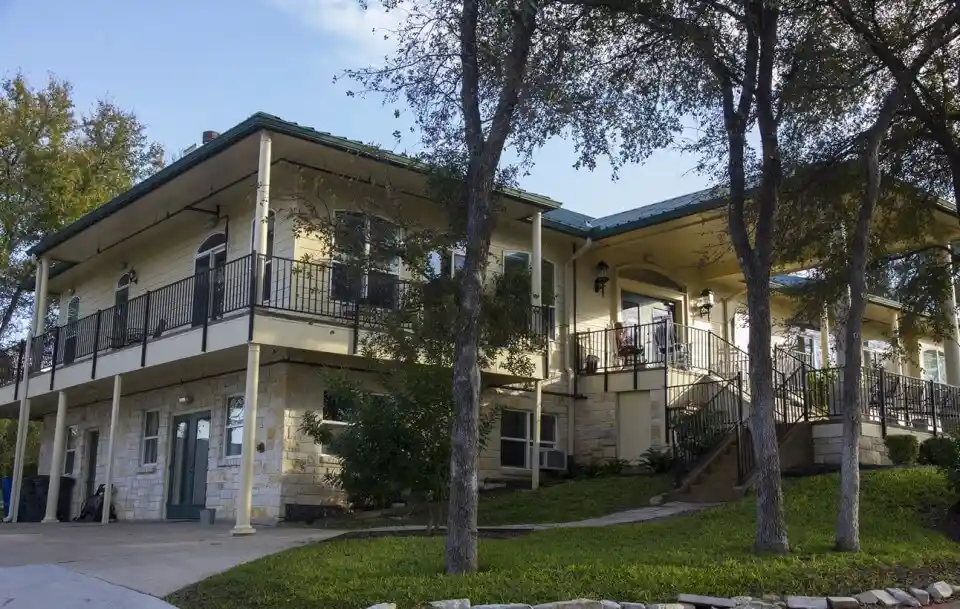





Imagine struggling with addiction, seeking treatment, achieving sobriety, and then, unfortunately, relapsing multiple times. This painful cycle, known as chronic relapse, can feel like an uphill battle without an end in sight. However, with the right strategies and support, breaking free from this cycle is possible.
Key Takeaways
Understanding the reasons behind chronic relapse, a type of long-term illness, is essential to create effective treatment plans and provide appropriate support. The pattern of this condition involves multiple stages – mental relapse, emotional relapse and physical relapse – that can be circumvented with proper assistance and strategies.
Effective intervention for those suffering from persistent relapses Consists in prolonged addiction treatments applying evidence based behavioural therapy along with a continuum-of care plan intended to ensure sustained recovery. This approach has been effectively used as an efficient way manage repeat occurrences while promoting sobriety over time.
The results brought about by frequent recurrences of chronic disease may have severe consequences such as legal issues, broken relationships or deep guiltiness feelings. Hence it’s necessary to understand why these occur in order make sure sufferers receive suitable aid for their recoveries from addiction.

When addiction relapse occurs, drug abuse may become evident and long-term support is necessary. One way to break this cycle of chronic relapse is by recognizing the signs of emotional and mental issues linked with substance use. Mental reminders or desires for drugs or alcohol could be a sign that someone needs assistance from an addiction treatment program such as Jaywalker’s continuum-of-care service which offers personalized strategies catered toward their individual recovery goals. Emotional indicators can include lack of self care, withdrawing from others, not asking for help. All which need attention if successful improvement in addict’s conditions are desired through ongoing maintenance under comprehensive professional supervision.
Many people who suffer from chronic relapsing disorder find it difficult to achieve lasting recovery due to misconceptions about treatment, inadequate relaxation strategies and a lack of adequate support. It is important for those affected by addiction that they continue their mental health treatments in order not only help manage but also build resilience against triggers. As such, building a strong network filled with caring family and friends can be very beneficial. Providing assistance when needed while reinforcing good habits related to sobriety during the journey towards full recovery from drug addiction
Likewise, continuing healthy hobbies or activities keeps minds engaged on something else instead of returning back into destructive patterns. By doing this combined with effective management around one’s wellbeing has been proven time and again as being essential components for successful long-term relief both physically an mentally over substance abuse issues.

It is essential to identify the symptoms of chronic relapse early in order to respond effectively. Relapse can be both an event and a process, making it important for one to recognize any signals that may lead up the occurrence itself. Having knowledge on these warning signs allows recovery opportunities like integrating coping skills back into their routine or reconnecting with help from friends, family, or counselors before getting too far down the road towards full-blown regression.
Chronic relapse indicators include emotional triggers such as anxiety and sadness along with environmental elements including being around substances used by others often or scenarios where using could take place easily– all factors which should play into how someone monitors themselves during treatment. Taking notice of these clues enables greater understanding regarding what impacts will arise when attempting stay strong while recovering from addiction disorders.
Emotional triggers can be very dangerous for those in recovery, as they could lead to denial and cravings which will cause relapse. Past substance use may serve as a reminder that induces these same feelings of craving or despair. Celebrations involving drugs or alcohol also have the potential to jeopardize one’s journey if not managed carefully due to an overestimation of capabilities. This false security is likely going to bring about regression towards addictive behavior again.
Avoiding such pitfalls requires awareness regarding emotional cues before any possible derailment takes place during the process of rehabilitation from addiction.
Certain environmental conditions, such as social pressure or contact with illicit substances, can heighten the possibility of relapse for someone in recovery. Family and home dynamics play a major role too. A supportive atmosphere that promotes sobriety stands against an unsupportive setting characterized by chaos which may urge substance use. Friendships and other kinds of associations also have effects on recurring relapses since being around specific circles can boost the chances of experiencing another episode.
Trauma situations and related stresses enhance risks significantly when it comes to recurrence for those who are attempting sobriety. Stressful events often actuate cravings if not managed correctly leading to backsliding – thus one needs be conscious these external influences so they’re able avoid continuous slips while persevering through their path towards healing.
Relapse prevention and long-term recovery for substance use disorder are key components of treating chronic relapse. Treatment approaches may vary, but some common methods include residential programs over an extended period of time, the continuum of care model to tailor services according to individual needs during their journey towards healing, as well as creating plans that involve recognizing triggers and developing strategies for staying away from them in order to utilize cognitive therapy or mind-body relaxation techniques which foster healthy coping skills.

Residential programs of long-term duration provide round the clock care and assistance to people struggling with chronic relapse, ensuring their safety in a secure setting for up to 12 months. Burning Tree Ranch offers an extensive 8, 14 month program offering comprehensive treatment specifically designed for adults fighting against recurrent downfall.
The services featured include one on one counseling sessions, medication management as well as skill acquisition workshops that are aimed at aiding participants towards recovery goals and developing a fulfilling lifestyle post rehab session. The Graduate Program administered by National Institute empowers individuals making it easier for them to grab hold onto sustained freedom from addiction while regaining control over life matters..
Availing these kinds of treatments has been found beneficial when trying attain sustainable recuperation. Especially if you decide upon inpatient therapy methods offered through various residential establishments specializing in such areas where dedicated professionals aid clients during every step along their healing process.
The Lodge, an intensive 90-day multi-model treatment center in the Rocky Mountains of Colorado has established a continuum of care model that tailors individualized treatment plans. This comprehensive approach helps individuals struggling with substance use disorder receive necessary support to achieve successful recovery outcomes. The inspiring atmosphere and resources available at this center provide unique insights for those seeking aid on their journey towards well being and sobriety from substance abuse issues. By offering the right levels of intensity and assistance tailored specifically to each client’s needs, it is possible to ensure everyone receives appropriate help when overcoming challenges associated with their use disorder or addiction.
Relapse prevention is an important part of the recovery journey from addiction or substance abuse. By working with professionals, such as therapists and specialists, those in recovery are able to come up with personalized plans that help them stay on track. This may include identifying potential high-risk situations like being around people who use drugs/alcohol or feeling overwhelmed by stress. As well having support for coping strategies which allow one to remain committed towards sobriety and mental wellness. It also provides guidance so that individuals feel less lonely or isolated when bored/unmotivated during their recovery progressions.

Achieving and maintaining lasting recovery from addiction requires a strong support system in the form of sober living communities, participation in support groups, as well as including family involvement. An understanding environment combined with open communication can help to foster commitment which leads to sustained recovery for those on their journey through this process. Involvement within such a supportive network reduces one’s risk of relapsing back into old habits.
Sober living homes, or halfway houses as they are sometimes referred to, offer a safe and supportive setting for people recuperating from substance addiction. These residences provide an effective way of maintaining sobriety while regaining confidence in the ability to integrate into society again. Residents participating in sober living communities should observe abstinence rules faithfully, take part in recovery program meetings regularly, do their share with house duties, all this so that continued progress can be made against dependency on drugs or alcohol.
The advantages offered by such sober-living environments include: allowing individuals to maintain sobriety more efficiently than if alone, providing tools needed when reintegrating back into mainstream society confidently , enforcing accountability at all times leading toward better informed decisions about lifestyle choices concerning drug and/or alcohol use going forward.
Participating in support groups and building connections with peers can offer great advantages to those who are striving for sustained recovery. These networks provide individuals battling addiction a source of encouragement, treatment retention, improved relationships and social supports as well as the opportunity to learn skills useful for leadership roles. Support through shared successes from others’ experiences also serves to be highly motivational during this challenging process. It helps one stay on track while preventing relapse along their journey towards regaining health & wellbeing. Online resources – like meetings connecting people recovering from addiction – help them find these helpful sources of support quickly!
Family involvement and education can be crucial components of a successful support system for those in recovery. Including family members in the treatment plan or process is beneficial, especially when it comes to teens and young adults with chronic relapse. This inclusion fosters understanding through communication, creating an environment that is nurturing while also encouraging Progress within one’s own healing journey. The participation of families gives them greater insight into what their loved ones are enduring during this time. Consequently leading to improved relationships as well as more positive outcomes from therapeutic methods being implemented on behalf of the individual’s ongoing recovery efforts.

For young adults and teens in recovery, tailored treatments that focus on the development of resilience and coping skills are essential. These age groups require special support to address their distinctive needs which can increase relapse risk or disrupt treatment progress. These could include managing emotions, impulsive behavior, as well as making decisions.
By providing such specialized aid while addressing those specific developmental issues associated with adolescents/young adults-focused therapy approaches may improve overall outcomes for them throughout their journey towards successful rehabilitation. By understanding the necessity of developing strong coping strategies along with supportive services meant specifically for this demographic, it is possible to ensure a much more successful outcome when dealing with addiction recoveries amongst youth populations.
Young adults and teens can greatly benefit from tailored treatment plans specifically designed for their unique needs. This could involve specialized programs, therapies such as cognitive-behavioral therapy or dialectical behavior therapy, family support, peer counselling and other evidence based methods of assistance that address any issues related to substance use or mental health. Having the right kind of personalized help gives young people a chance to reach goals they have set out for themselves in life. All these tools combined are invaluable in helping them meet those goals.
For young adults and teens struggling with chronic relapse, building resilience and mastering coping skills can be extremely helpful in aiding their substance abuse recovery. It helps them bounce back quickly, decreases the possibility of a recurrence, and heightens the quality of life.
To Develop such abilities for managing situations efficiently during tough times requires emotional regulation as an essential ingredient. It allows individuals to regulate emotions effectively along with reactions when they face difficulties.
Good physical health is just as imperative for successful resolution since having energy reserves which include frequent workouts coupled with nutritious meals followed by sufficient sleep grants strength both mentally and physically that are required while overcoming addiction or relapsing behavior patterns.
By taking the appropriate steps, such as being aware of warning signs and getting specialist treatment tailored to young adults or teens, those struggling with chronic relapse can break its cycle. Through sustained recovery strategies that focus on making lifestyle changes alongside having access to adequate support services, long-term sobriety is achievable. With dedication and guidance from external sources who understand their individual needs, individuals are able to conquer this issue for good, so they can lead a successful sober life.
Relapse can be a debilitating problem to deal with, especially for those close to the person affected as they must endure watching them continually fail in their efforts at rehabilitation.
Sadly, studies demonstrate that those in the process of recovering from a condition often succumb to relapse within one year, with an astonishing 40-60% doing so mere days after ending their treatment program.
Relapse can be avoided with the right support and strategies. It is a three-stage process which involves emotional, mental and physical aspects. Each has its own set of symptoms. Emotional relapse displays signs such as neglecting self-care activities, heightened stress levels or negative thinking habits. Mental relapse occurs when a person contemplates using drugs or alcohol again despite prior efforts to quit these substances. To overcome this issue long term, it requires proper guidance from external sources in order to not succumb to temptation any longer for those who have previously used either drugs or alcohol frequently during their life span.
Becoming aware of what triggers an emotional or environmental response can be indicative of a potential relapse. Thus, it is essential to take steps for managing these reactions and asking family and friends for help in order to prevent relapsing.
Relapse prevention planning and long-term residential programs can be effective treatments for chronic relapse. A continuum of care model is also beneficial to helping people who struggle with recurrent relapses stay healthy. All these strategies provide a roadmap so that individuals in need may achieve positive outcomes over time.